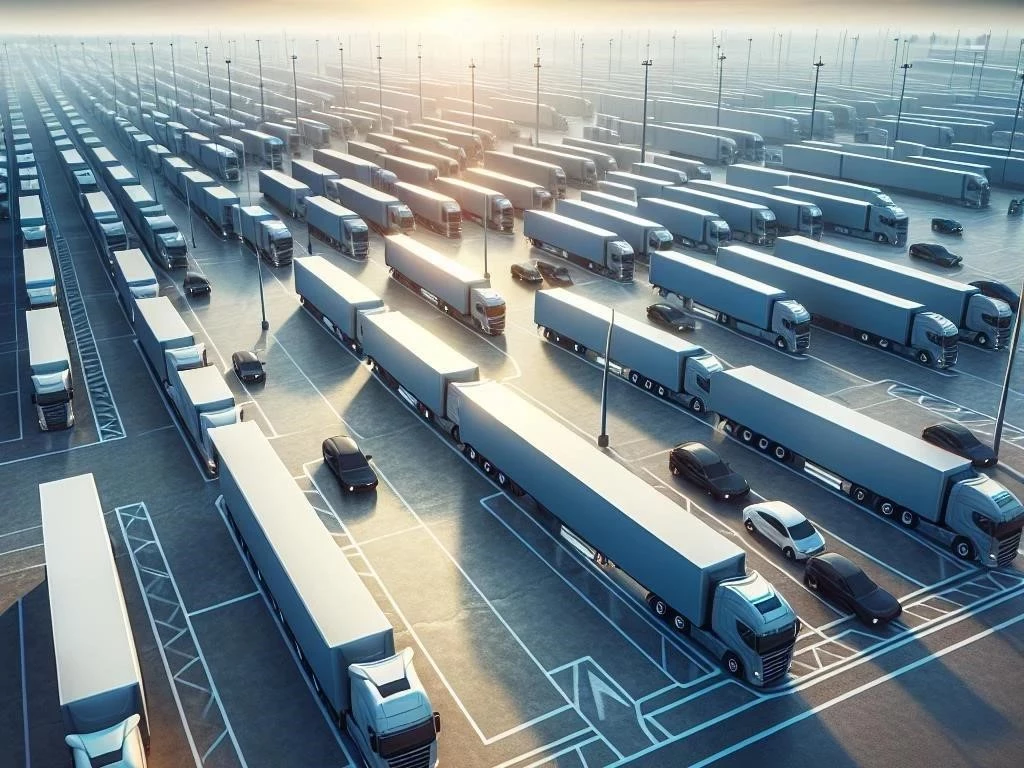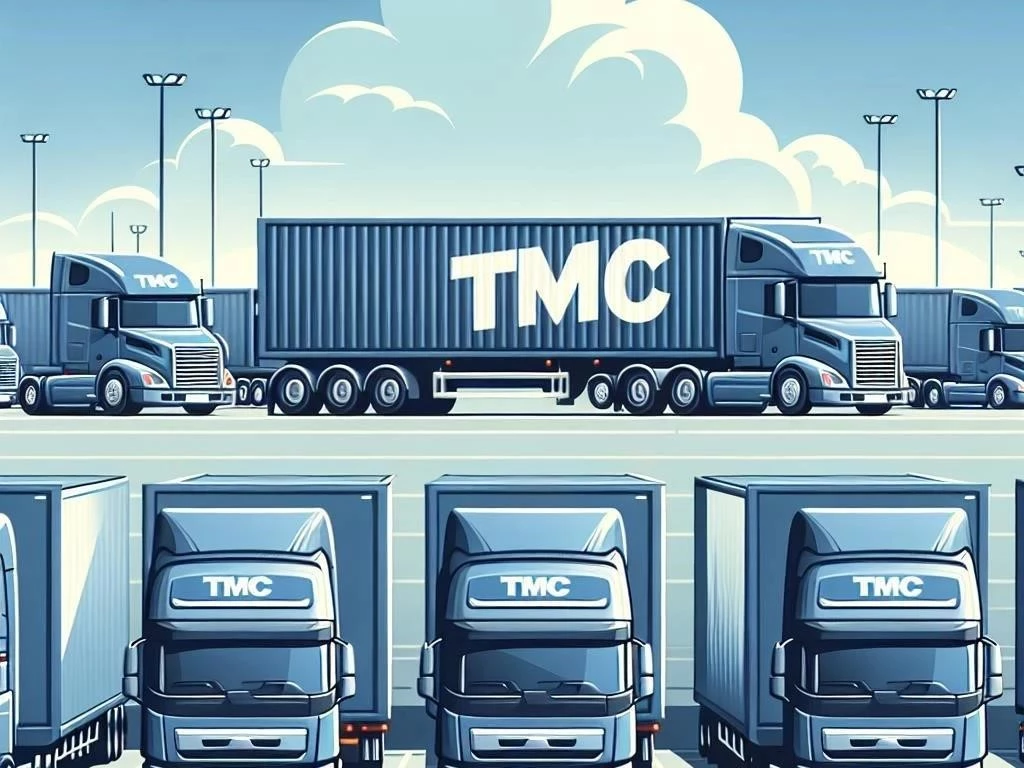TMC Transportation operates a significant trucking fleet, focusing on efficient logistics management and providing reliable transportation solutions within the commercial trucking industry.
1.1 Overview of TMC Transportation
TMC Transportation is a key player in the transportation industry, renowned for its substantial trucking fleet. While specific numbers may fluctuate, the company typically maintains a robust vehicle count designed to meet diverse logistics demands. This fleet includes various long-haul trucks and heavy-duty vehicles, ensuring effective freight transport capabilities. TMC Transportation prioritizes operational efficiency and adheres to industry standards, which enhances its reputation among freight carriers. By continuously investing in its trucking fleet, TMC aims to improve cargo capacity and optimize supply chain solutions. This commitment to excellence positions TMC Transportation as a leader in providing reliable transportation solutions for its clients.

1.2 Importance in the Transportation Industry
TMC Transportation plays a crucial role in the transportation industry, significantly contributing to freight transport efficiency. The company’s extensive trucking fleet is vital for meeting the growing demands of logistics and supply chain management. With a strong focus on operational efficiency, TMC ensures timely deliveries, enhancing customer satisfaction. The vehicle count reflects the company’s commitment to maintaining a competitive edge within the commercial trucking sector. By consistently adhering to industry standards, TMC Transportation fosters partnerships with various freight carriers, showcasing the importance of reliable transportation solutions. This dedication solidifies TMC’s position as an essential player in the logistics landscape, supporting diverse industries effectively.
Understanding Fleet Size
Fleet size is a critical metric in the trucking industry, determining a company’s capacity to meet logistics demands and efficiently manage freight transport operations.
2.1 Definition of Fleet Size in Trucking
Fleet size in trucking refers to the total number of vehicles owned and operated by a company, such as TMC Transportation. This metric is essential for understanding a company’s capacity to manage logistics and effectively transport freight. A larger fleet size typically indicates enhanced cargo capacity, allowing for the transportation of diverse goods across various regions. Fleet size can include a mix of long-haul trucks and heavy-duty vehicles, catering to specific industry needs. Furthermore, it directly impacts operational efficiency, as companies must balance vehicle count with maintenance, driver availability, and market demand to optimize logistics management and service delivery in the transportation industry.
2.2 Factors Influencing Fleet Size

Several factors influence the fleet size of a trucking company like TMC Transportation. Primarily, market demand plays a crucial role, as fluctuations in freight volumes require adjustments in vehicle count. Additionally, operational efficiency is key; companies must evaluate maintenance costs, fuel consumption, and driver availability to optimize their fleet. Regulatory requirements and industry standards also impact fleet size, dictating the types of vehicles needed to comply with safety and environmental regulations. Furthermore, advancements in technology, such as truck tracking systems, can affect decision-making regarding fleet expansion or reduction. Overall, these factors collectively determine the appropriate fleet size for effective logistics management.

TMC Transportation’s Trucking Fleet
TMC Transportation’s trucking fleet comprises a diverse range of vehicles, strategically maintained to ensure reliability and efficiency in fulfilling logistics and freight transport requirements.
3.1 Total Vehicle Count at TMC Transportation
The total vehicle count at TMC Transportation is a significant metric that reflects the company’s capacity to meet customer demands in freight transport. While exact numbers may vary, TMC typically maintains a fleet that includes hundreds of trucks, showcasing its commitment to operational efficiency. This extensive vehicle count allows TMC to effectively manage logistics across diverse industries, ensuring timely deliveries and high service quality. The trucking fleet consists of various models, including long-haul trucks and heavy-duty vehicles, tailored to handle different cargo types. By investing in a robust fleet, TMC Transportation strengthens its position as a leader within the commercial trucking and logistics sectors.
3.2 Breakdown of Long-Haul Trucks and Heavy-Duty Vehicles
TMC Transportation’s fleet comprises a strategic mix of long-haul trucks and heavy-duty vehicles, designed to optimize freight transport capabilities. Typically, a significant portion of the fleet consists of long-haul trucks, which are essential for transporting goods over extended distances efficiently. These trucks are equipped for comfort and performance, ensuring timely deliveries. In addition, heavy-duty vehicles are incorporated to handle larger cargo loads and support various logistics operations. This breakdown of vehicle types allows TMC to adapt to diverse shipping needs while maintaining high operational efficiency. The combination of both long-haul and heavy-duty vehicles positions TMC Transportation as a reliable freight carrier.

Cargo Capacity and Operational Efficiency
Cargo capacity is vital for trucking companies, impacting operational efficiency and allowing firms like TMC Transportation to effectively manage logistics and meet customer demands.
4.1 How Cargo Capacity Affects Fleet Management

Cargo capacity significantly influences fleet management strategies at TMC Transportation. A larger cargo capacity allows the company to transport more goods per trip, enhancing operational efficiency and reducing costs. This efficiency enables better utilization of resources, as fewer trips are needed to meet customer demands. Furthermore, understanding cargo capacity helps TMC optimize its vehicle selection, ensuring the right trucks are used for specific loads. This alignment guarantees compliance with weight regulations and enhances safety during transport. Additionally, effective cargo capacity management contributes to improved customer satisfaction, as timely deliveries and minimized delays reinforce TMC’s reputation as a reliable freight carrier in the logistics industry.
4.2 Strategies for Operational Efficiency in Logistics
To maximize operational efficiency, TMC Transportation employs several key strategies within its logistics framework. Firstly, implementing advanced truck tracking systems enables real-time monitoring of vehicle locations and cargo status, leading to improved route planning and timely deliveries. Additionally, regular maintenance schedules ensure that the trucking fleet remains in optimal condition, minimizing downtime and repair costs. Training drivers on safe and efficient driving practices also enhances fuel efficiency and reduces operational expenses. Furthermore, TMC focuses on data analysis to identify trends and optimize load planning, ensuring that each vehicle operates at its maximum cargo capacity. These strategies collectively enhance overall logistics performance and customer satisfaction.

Truck Tracking and Logistics Management
Effective truck tracking systems are essential for managing logistics efficiently, enabling companies like TMC Transportation to ensure timely deliveries and optimize fleet operations seamlessly.
5.1 Importance of Truck Tracking in Freight Transport
Truck tracking plays a vital role in the freight transport sector, particularly for companies like TMC Transportation. By utilizing advanced tracking technologies, TMC can monitor the real-time location of its extensive trucking fleet, ensuring efficient route management and timely deliveries. This capability enhances transparency and communication with clients, allowing them to receive updates on cargo status. Furthermore, truck tracking aids in identifying potential delays or issues, enabling proactive solutions to minimize disruptions. Additionally, the data collected through tracking systems contributes to analyzing operational performance and optimizing logistics strategies. Overall, effective truck tracking is essential for maintaining high service quality and customer satisfaction.
5.2 Logistics Management Best Practices for Trucking Companies
Effective logistics management is crucial for trucking companies like TMC Transportation to thrive in a competitive industry. One best practice involves optimizing route planning, which minimizes fuel consumption and reduces delivery times. Implementing technology solutions, such as fleet management software, enhances visibility into operations, allowing for better decision-making. Regular training programs for drivers promote safety and efficiency, contributing to overall operational performance. Additionally, maintaining strong relationships with suppliers and clients fosters collaboration and ensures smoother logistics processes. Lastly, analyzing performance metrics regularly helps identify areas for improvement, enabling continuous enhancement of logistics strategies. These best practices collectively drive success in the transportation industry.
TMC Transportation’s trucking fleet demonstrates a commitment to operational efficiency, logistics management, and effective freight transport solutions within the competitive landscape of the transportation industry.
6.1 Summary of TMC Transportation’s Fleet Size
The fleet size of TMC Transportation is a critical indicator of the company’s capacity to serve diverse logistics needs. While the exact number of trucks may vary, TMC typically maintains a robust fleet that includes hundreds of vehicles, comprising both long-haul trucks and heavy-duty models. This extensive fleet allows the company to effectively manage freight transport across various regions, ensuring timely deliveries and high operational efficiency. The combination of vehicle types within the fleet is strategically designed to meet specific cargo requirements while adhering to industry standards. Overall, TMC Transportation’s fleet size plays a vital role in its success within the transportation industry.
6.2 Future Trends in the Transportation Industry
The transportation industry is poised for significant transformation in the coming years, driven by technological advancements and evolving consumer expectations. Companies like TMC Transportation will likely adopt more sophisticated logistics management systems, enhancing efficiency and transparency in freight transport. Electric and autonomous vehicles are anticipated to gain traction, contributing to sustainability goals and reducing operational costs. Additionally, data analytics will play a crucial role in optimizing fleet performance and improving decision-making processes. The integration of real-time tracking and communication technologies will further enhance customer service and satisfaction. Overall, these trends will shape the future of transportation, offering innovative solutions for logistics challenges.